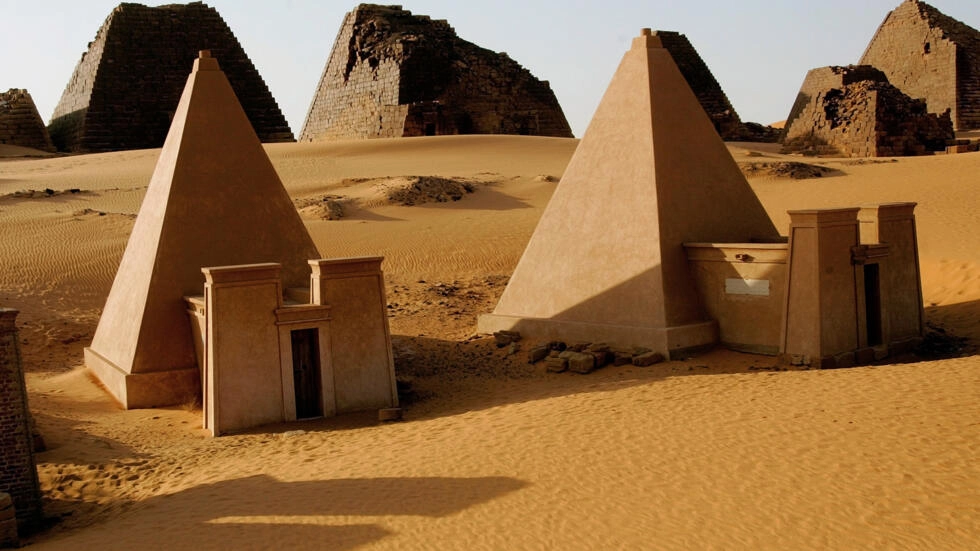The United Nations Educational, Scientific and Cultural Organization (UNESCO) has expressed concern over reports of the spread of armed conflict in Sudan to the archaeological areas of the island of Meroe, which are classified as World Heritage Places.
“UNESCO is deeply concerned by recent reports of military activities on the island of Meroe in Sudan, whose archaeological sites have been inscribed on the World Heritage List. We call on the parties not to target these sites or use them for military purposes.”
#UNESCO is deeply concerned about recent reports of military activities on the island of Meroe, in #Sudan, whose archaeological sites are inscribed on the #WorldHeritage List. We call on parties not to target or use these sites for military purposes.
📰 https://t.co/usgx9eSfuV pic.twitter.com/eqLBdSP129
— UNESCO 🏛️ #Education #Sciences #Culture 🇺🇳 (@UNESCO) January 19, 2024
The RSF militias had published videos of themselves from the center of the archaeological area, while some pro-army sites reported that the army had driven them out of those areas earlier.
Local rights groups also condemned the arrival of battles between the army and the Rapid Support to the World Heritage Island of Meroe, and warned of the risk of damage to the ruins of the more than 2,300-year-old Kingdom of Kush. The Regional Network for Cultural Rights said it “condemns the RSF’s second entry into the sites of al-Naqa and al-Musawarat archaeological sites.”
The Regional Network for Cultural Rights said it “condemns the RSF’s second entry into the sites of al-Naqa and al-Musawarat archaeological sites.”
The RSF entered the archaeological site for the second time on Sunday, after first entering it on December 3rd, it said in a statement.
The archaeological site is located in the River Nile State in the north of the country.
Local authorities in River Nile state said the RSF “tried to infiltrate through the area of al-Naqa and al-Musawarat, and the air force confronted them”, stressing the return of calm to the area.
In its statement, the Regional Network for Cultural Rights said that the sites of Al-Naqa and Al-Masourat are considered among the most important historical sites registered on the World Heritage List in Sudan, as they include statues, monuments and shrines since the Meroitic era (350 BC to 350 AD).
The human rights organization, citing “reliable sources, photos and videos published on social media, confirmed that a war battle took place between the Sudanese army forces and the Rapid Support Forces, which exposes these sites to vandalism, destruction, looting and theft.”
In 2011, UNESCO inscribed the island of Merowe on its World Heritage List.
According to UNESCO, the archaeological sites on the island of Meroe are “semi-desert areas between the Nile River and the Atbara River, the stronghold of the Kingdom of Kush, which was a great power between the eighth and fourth centuries BC, and consists of the royal metropolis of the Kushite kings in Meroe, near the Nile River, and near the religious sites of Naqa and the yellow pictures.”
UNESCO adds in its definition of the island that it “was the seat of the rulers who occupied Egypt for nearly a century and more, among other monuments, such as pyramids, temples, residential houses as well as major structures, all connected by a water network.”
The war in Sudan since April 15 has killed more than 13,000 people, according to a toll reported by the Armed Conflict Sites and Events Data Project (ACLID), but experts consider it a significant underestimate.
The conflict has also displaced some 7.5 million people inside and outside the country, according to the United Nations.


